Leslie Holt
St. Louis, Missouri

Leslie Holt is the Executive Director of VSA Missouri, the state organization on arts and disability. She is a visual artist, educator and advocate with extensive experience in social work and advocacy for people with mental illness, developmental disabilities, and low-income college students. She is represented by galleries in St. Louis, Memphis and Washington, DC and has taught art for over ten years at community colleges and universities.
Leslie has a BFA in painting from Washington University in St. Louis, an MFA in painting from Washington State University, is a graduate of the Community Arts Training Institute (CAT) and a current TIGER fellow. Her area of research examines how art can dispel stigma about people with disabilities.
Presentation(s):
Inquiry and Research in Arts-Based Community Development 2
Day 2 / Apr, 13 @ 2:45 pm
Lower Level : Room D
This session is a series of inquiries briefly presented by fellows in an arts-based community development training. Each was asked to create a 10 minute presentation about their research.
LINDA M. NANCE: Leadership by Design: What are the merits of intentionally enhancing the leadership skills of artists and other creatives? How can access to civic leadership training improve opportunities to effect positive community change through the arts?
LESLIE HOLT: Art and Disability: How can art dispel stigma about disability? How can an artist meld socially engaged community arts work with personal studio practice?
EMILY HEMEYER: SPORE Projects and the Web of Influence: Reflecting on years of intuitive community building through collaborations, temporary projects, public forums, and artist-run-spaces; Hemeyer is creating an evolving Web of Influence based on personal documentation of her own projects. Developing questions include: What is the impact of these types of projects on community development creative ecosystems? Is it measurable? How are relationships intertwined and how can further inclusion be achieved? How can this apply to other fields of inquiry?
KAVEH RAZANI: What does gentrification mean? How can we develop artist’s communities without displacement?
CON CHRISTESON: Confronting and Configuring a Community Art Practice: 12 years of documenting the arts-based program at Peter & Paul Services for men who have been homeless. What worked? Why? Is it transferable?
The Community Arts Training (CAT) Institute at the St. Louis Regional Arts Commission created a one year pilot training program that further builds on the the CAT Institute’s cross-sector training in arts-based community development. The Institute’s Graduate Education and Research Program – referred to by the fellows and faculty as TIGER – is an expansion of the Institute’s training with an inquiry-based curriculum for artists and for community/social service practitioners to examine and go deeper into their arts-based work.
TIGER Fellows are CAT Institute graduates and experienced practitioners who have indicated they are ready to expand their scope of practice and become more assertive in their approach to significant community challenges to create positive social change. TIGER aims to produce graduates who will apply arts-based tools and strategies to specific issues and have a more honed, intentional focus for effecting change. The TIGER Fellows are tasked to engage in meaningful research in an area of inquiry of their own choosing with the intention of deepening their individual effectiveness and influencing the field of arts-based community development.
TIGER is underwritten by RAC and the Kresge Foundation. TIGER Faculty: Kathryn Bentley, William Cleveland, Elizabeth Goebl-Parker, Jane Ellen Ibur and Roseann Weiss (Director).





